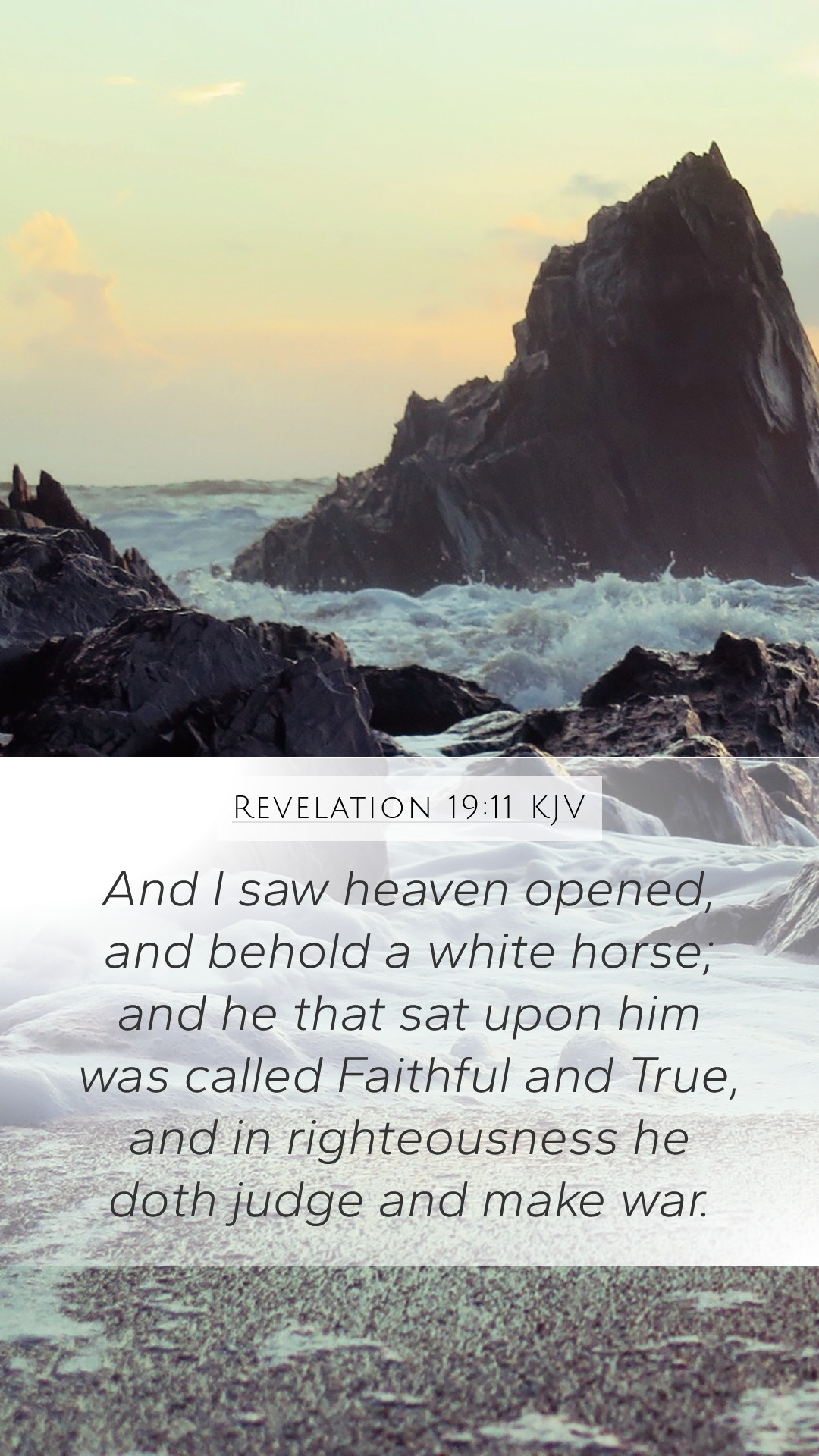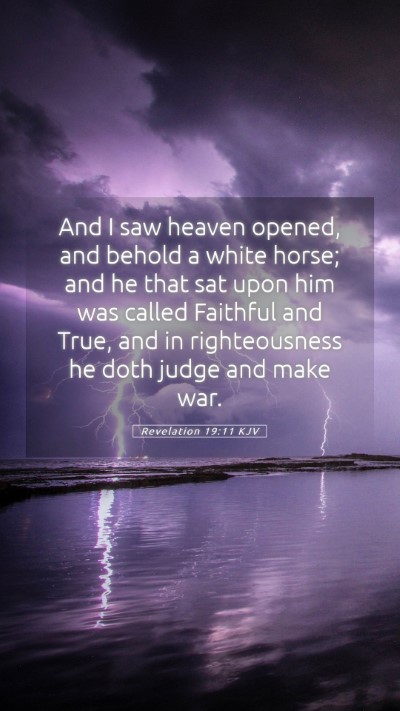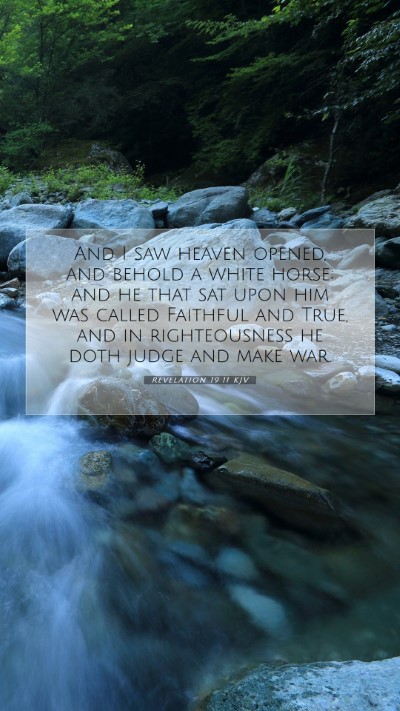Understanding Revelation 19:11
Revelation 19:11 is a profound verse in the Bible that introduces the triumphant return of Christ as a conqueror. This passage is rich in symbolism and meaning, providing insights into the nature of Jesus and His mission. Below is a detailed commentary incorporating insights from renowned public domain commentaries such as those by Matthew Henry, Albert Barnes, and Adam Clarke.
Bible Verse Meaning and Interpretation
Revelation 19:11 states, 'And I saw heaven opened, and behold a white horse; and he that sat upon him was called Faithful and True, and in righteousness he doth judge and make war.'
1. Heaven Opened
The phrase "heaven opened" signifies divine revelation and the unveiling of God's ultimate plan. Matthew Henry remarks that this opening symbolizes the visibility of heavenly truths and events to humanity, illustrating the supernatural nature of Christ's return.
2. The White Horse
The "white horse" represents victory, purity, and righteousness. As Albert Barnes observes, the imagery of a horse, particularly a white one, is associated with triumphant kings. This aligns with the ancient custom of Roman generals, who would ride white horses after victory. The horse serves as a symbol of Christ's authority and power as the ultimate conqueror.
3. Faithful and True
In calling the rider “Faithful and True,” the verse emphasizes the reliability and authenticity of Christ. Adam Clarke points out that this title reflects Jesus’ character and His unwavering commitment to justice. He is depicted as trustworthy in fulfilling God's promises and righteous in His judgment, making Him the perfect judge of mankind.
4. Judging and Making War in Righteousness
The statement that He "doth judge and make war" indicates the dual aspects of Christ's mission: judgment against sin and the establishment of His kingdom. Matthew Henry highlights that the war here is not against flesh and blood but against the spiritual forces of darkness, underpinning the concept of a holy war against evil.
Insights from Commentaries
- Matthew Henry: Emphasizes the importance of recognizing Christ's authority in judgment and His role as the ultimate victor over evil.
- Albert Barnes: Focuses on the symbolism of the white horse and attributes victory and kingship to Jesus, enhancing our understanding of His divine power.
- Adam Clarke: Analyzes the characteristics of Christ depicted in this verse, stressing the significance of being 'Faithful and True' in the eternal plan of salvation.
Application and Significance
Understanding Revelation 19:11 is crucial for those seeking deeper Bible verse meanings and interpretations. This verse encapsulates the message of hope and divine justice, portraying Christ’s return as a moment of reckoning and triumph. For Bible study groups or individuals engaging in online Bible study, reflecting on these themes can enhance comprehension and promote meaningful discussions.
Cross References
- Matthew 24:30: Describes the coming of the Son of Man, reinforcing the theme of Christ’s return and power.
- 2 Thessalonians 1:7-10: Discusses the Lord’s revelation from heaven in which He is glorified in His saints.
- Revelation 1:7: States that every eye will see Him, underlining the universal acknowledgment of Christ’s authority.
In-Depth Analysis and Final Thoughts
This verse illustrates key aspects of Christian eschatology and the ultimate victory of God. For those studying Scripture, understanding Revelation 19:11 provides a lens through which the entire narrative of the Bible can be viewed—centered on God’s plan for redemption and justice.
For readers seeking Bible study insights or tools for Bible study lessons, contemplation on this scripture encourages them to reflect on their relationship with Jesus as the Faithful and True, and the call to live in hope of His righteous return.


